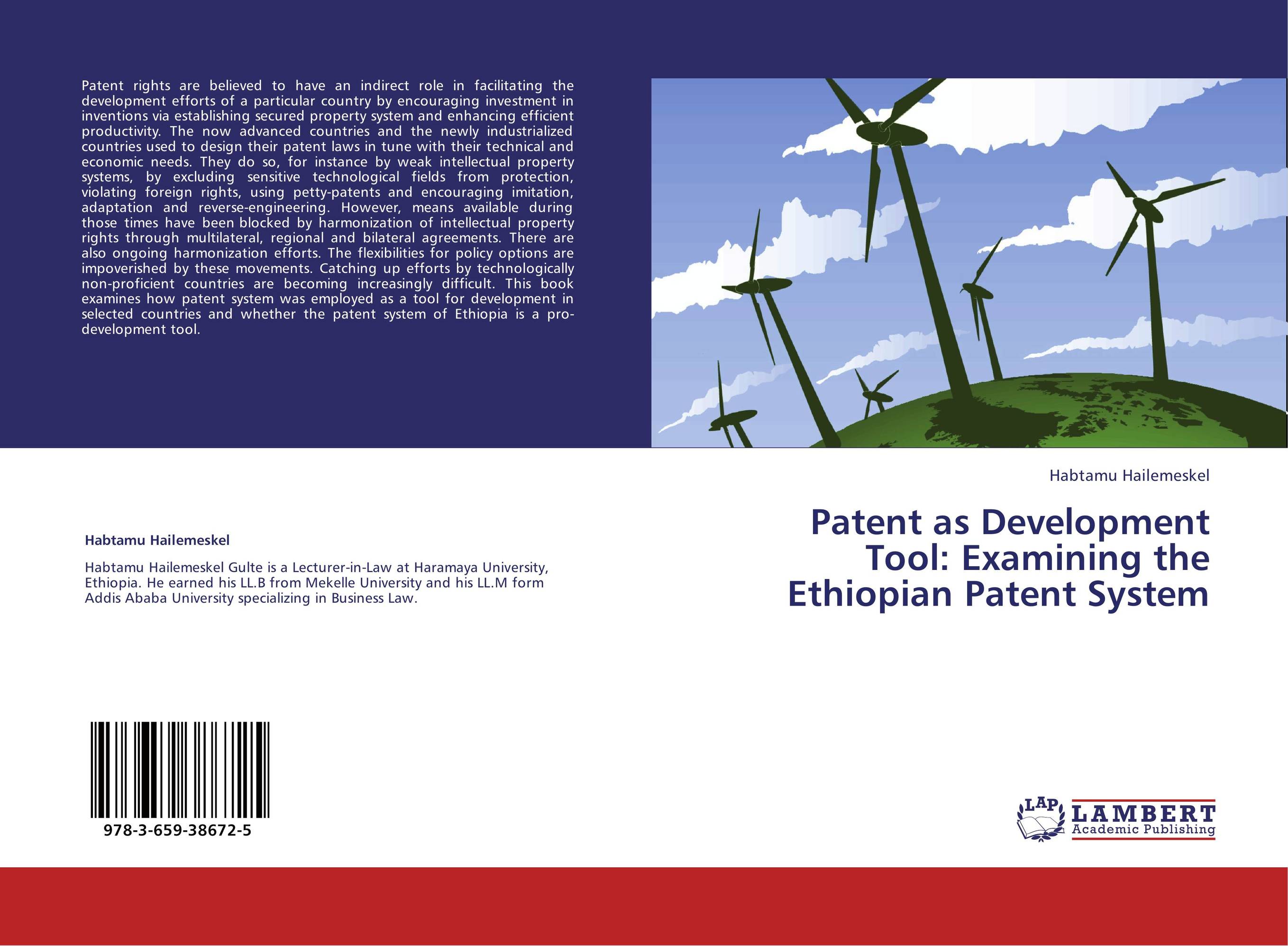| Поиск по каталогу |
|
(строгое соответствие)
|
- Профессиональная
- Научно-популярная
- Художественная
- Публицистика
- Детская
- Искусство
- Хобби, семья, дом
- Спорт
- Путеводители
- Блокноты, тетради, открытки
Patent as Development Tool: Examining the Ethiopian Patent System.

В наличии
| Местонахождение: Алматы | Состояние экземпляра: новый |

Бумажная
версия
версия
Автор: Habtamu Hailemeskel
ISBN: 9783659386725
Год издания: 2013
Формат книги: 60×90/16 (145×215 мм)
Количество страниц: 56
Издательство: LAP LAMBERT Academic Publishing
Цена: 24840 тг
Положить в корзину
| Способы доставки в город Алматы * комплектация (срок до отгрузки) не более 2 рабочих дней |
| Самовывоз из города Алматы (пункты самовывоза партнёра CDEK) |
| Курьерская доставка CDEK из города Москва |
| Доставка Почтой России из города Москва |
Аннотация: Patent rights are believed to have an indirect role in facilitating the development efforts of a particular country by encouraging investment in inventions via establishing secured property system and enhancing efficient productivity. The now advanced countries and the newly industrialized countries used to design their patent laws in tune with their technical and economic needs. They do so, for instance by weak intellectual property systems, by excluding sensitive technological fields from protection, violating foreign rights, using petty-patents and encouraging imitation, adaptation and reverse-engineering. However, means available during those times have been blocked by harmonization of intellectual property rights through multilateral, regional and bilateral agreements. There are also ongoing harmonization efforts. The flexibilities for policy options are impoverished by these movements. Catching up efforts by technologically non-proficient countries are becoming increasingly difficult. This book examines how patent system was employed as a tool for development in selected countries and whether the patent system of Ethiopia is a pro-development tool.
Ключевые слова: economic development, Inovation, technological learning, compensatory liability regime



